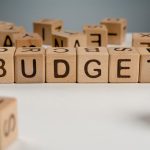Greece and its debt obligations (and default) are back on the agenda in a big way and that means a whole host of experts are filling media air time and column space with what they think will happen next.
They don’t know, but they’ll happily tell you they do. If you’re in the market for a doom and disaster opinion there is no shortage of them. There will be volatility, but predictions of a financial apocalypse where Greece sets off a chain reaction that collapses other countries and ends with savings being confiscated are ridiculous.
The safest option, we’ve always found, is to use history as our guide.
You might be surprised to know a significant number of countries have defaulted on their debt over the years, but the two most notable in recent memory were Russia and Argentina.
In 1998 the Asian financial crisis combined with a decline in oil prices found Russia wanting and unable to pay its debts. Russia’s debt crisis, as with the current Greek crisis was playing havoc with world financial markets.
The months preceding Russia’s default knocked between 8-10% from world share markets, yet after the default happened, confidence appeared to return. Despite the default, Australia, the US and major international markets posted double digit returns for 1998.
Interestingly, after Russia defaulted, some foreign investors said they’d rather eat nuclear waste than buy Russian bonds again, yet a little over a year later foreign investors were back investing in Russian government bonds.
The key point here is when there is opportunity investors will move back in very quickly – as the oil price regained ground so did Russia’s ability to start repaying debts.
Three years after Russia defaulted, Argentina suspended payments on its $132 billion in debt in late 2001. At the time financial markets were still in the midst of shakiness after 9/11 combined with the dot-com bubble bursting, so it’s tougher to trace the impact of Argentina’s debt default, but it was some time in the making (similar to Greece). This meant many international lenders and investors had limited their Argentinian exposure.
Right now Greece is in default and waiting for a weekend referendum on accepting future austerity measures. There are still negotiations on new aid, payment extensions and debt restructuring in the works.
What happens next is anyone’s guess, but it’s meaningless for anyone building wealth for their life, retirement or children’s education. Expectations of volatility like this are built into portfolios according to an investor’s risk tolerance.
Financial markets have at least one correction a year and they all need a reason. At the moment Greece is it. The same media sources that never report on a 2% share market gain will lead their bulletins with a 2% fall and how many billions have been wiped off the market.
Some things never change.
This represents general information only. Before making any financial or investment decisions, we recommend you consult a financial planner to take into account your personal investment objectives, financial situation and individual needs.





